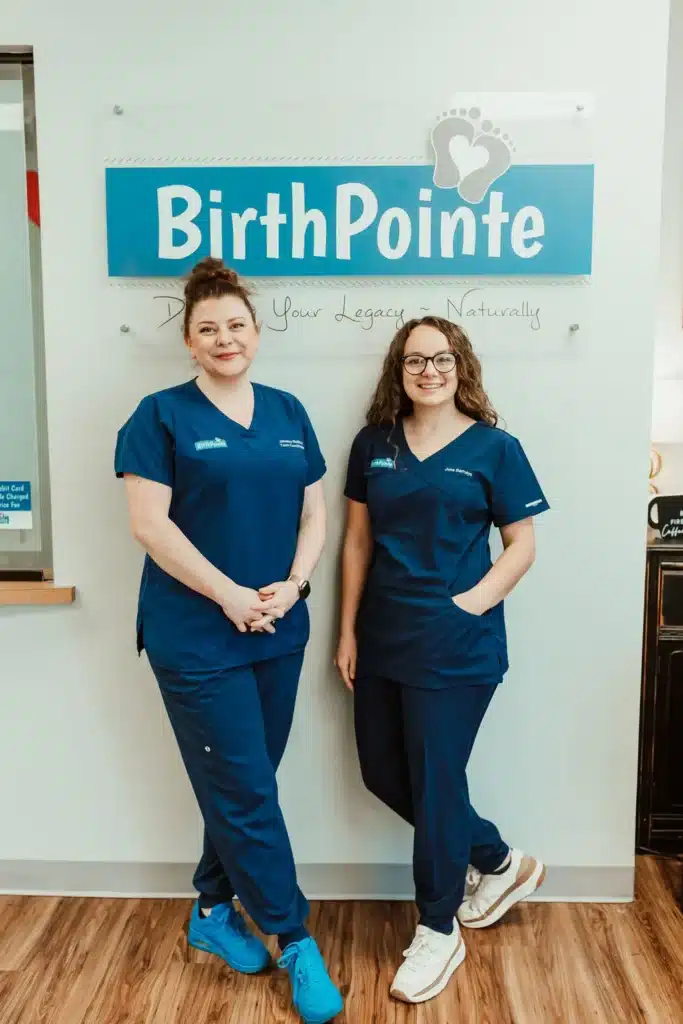If you’re an expectant parent in Fort Worth exploring a more natural, personalized approach to birth, you’ve probably come across the term Certified Nurse Midwife (CNM). Unlike purely hospital-centered care, CNMs blend advanced nursing and midwifery training with a philosophy of family-centered, low-intervention birth. They are highly qualified health professionals who not only attend births but also provide comprehensive women’s health across the lifespan.

For families considering out-of-hospital options like licensed birth centers in Texas, understanding who CNMs are, how they are trained, and how they collaborate with physicians can make decision-making much easier.
Below, you’ll find a clear look at CNM credentials, lifetime care, prescriptive authority, and collaboration in Fort Worth. You’ll learn how CNMs are trained, the care they provide, how they work with OB-GYNs, and why they are trusted by families seeking a safe, natural birth experience.
CNM Credentials: Training, Certification & Licensure
From Nurse to Midwife: The Path to Becoming a CNM

Becoming a Certified Nurse Midwife starts with licensure as a Registered Nurse (RN), often with years of bedside experience in women’s health, pediatrics, or labor and delivery. Candidates then complete a graduate-level midwifery program accredited by the Accreditation Commission for Midwifery Education (ACME)
Programs combine coursework in anatomy, physiology, pharmacology, and women’s health with extensive clinical rotations. Trainees participate in prenatal care, labor and birth support, postpartum recovery, and gynecologic care under the supervision of experienced CNMs and physicians.
National Certification and Ongoing Competency
Graduation is followed by the national certification exam from the American Midwifery Certification Board (AMCB). Passing this exam grants the CNM credential.
Competence is maintained through continuing education, clinical practice hours, and periodic recertification. For Fort Worth families, that means your provider stays current with evidence, safety guidelines, and best practices.
State Licensure in Texas
CNMs also hold Texas licensure through the Texas Board of Nursing as Advanced Practice Registered Nurses (APRNs). Dual oversight at the national and state levels helps ensure ethical, safe, high-quality care.
Lifetime Care: What CNMs Offer Beyond Birth
Full-Scope Women’s Health Across the Lifespan
CNMs are not just for pregnancy. They provide care during:
- Adolescence for menstrual health education and first gynecologic visits
- Family planning years for contraception counseling, fertility support, and prenatal care
- Pregnancy and postpartum for comprehensive maternity care and recovery
- Midlife and beyond for perimenopause, menopause management, and bone health
Many families appreciate the continuity. A relationship often begins in pregnancy and continues for annual exams, contraceptive counseling, and midlife support.
Continuity of Care and Trust
Choosing a CNM means gaining a long-term partner in health. This continuity builds trust, reduces anxiety, and supports care that reflects your values and goals.
You can schedule a tour of a Fort Worth birth center or contact a midwifery team through birthpointe.com to learn more about ongoing care options.
Prescriptive Authority and Collaboration in Texas
Understanding Prescriptive Authority
Families often ask if midwives can prescribe medication. In Texas, CNMs do have prescriptive authority as APRNs. They can prescribe medications, order lab work, and request imaging such as an ultrasound. Prescriptive authority operates within a delegated agreement with a collaborating physician, providing structured oversight and ready consultation.
In practical terms, your CNM can prescribe antibiotics for infections, order an ultrasound to check on your baby, or address menopausal symptoms without unnecessary delays.
Collaboration in Action
Collaboration is central to safe midwifery care. CNMs maintain formal agreements with physicians who are available for consultation and hospital support if needed.
If you are laboring at a local birth center and require transfer for a cesarean, your CNM will continue advocating for you, coordinate handoff to the OB team, and remain engaged in postpartum follow-up. This team-based approach preserves the benefits of low-intervention care while ensuring rapid access to advanced medical services.
For a detailed overview of the CNM scope of practice and safety, see the American College of Nurse-Midwives Scope of Practice statement.
Dispelling Misconceptions
Collaboration does not diminish CNM autonomy. CNMs independently manage low-risk pregnancies and consult or refer when risk increases. This structure enhances safety without compromising the personalized experience families value.
To learn how collaborations are structured at a Fort Worth practice, you can request a consultation via the main site at birthpointe.com.
Birth Settings: Where CNMs Practice in Fort Worth
Options for Families
CNMs practice in multiple settings:
- Hospitals for families who prefer on-site anesthesia and immediate surgical capability
- Birth centers for a licensed, home-like environment with strong safety protocols
- Homes for carefully screened, low-risk clients with established emergency plans
Birth Centers and Regulation
In Texas, birth centers are regulated by Texas Health and Human Services (HHSC) under Chapter 137 of the Texas Administrative Code. Standards cover staffing, equipment, emergency protocols, and quality assurance. Choosing a licensed center provides added confidence around safety and preparedness.
Choosing the Right Setting
Your health history, pregnancy risk level, and personal preferences should guide the decision among hospital, birth center, or home. CNMs help families weigh these factors and choose the best fit for their birth plan.
If you want to compare options in person, you can book a center tour through birthpointe.com.
CNM vs. Doula vs. OB-GYN: Building Your Birth Team
CNM vs. Doula
Doulas offer emotional, educational, and physical comfort measures but do not provide medical care. CNMs are medical providers who also prioritize education and personalized support. Many families choose both for comprehensive support.
CNM vs. OB-GYN
OB-GYNs are surgical and high-risk specialists. CNMs focus on physiologic, low-risk birth. The two roles are complementary. When complications arise, OB-GYNs manage procedures while CNMs maintain continuity and postpartum support.
Integrating Care
In many Fort Worth practices, CNMs, OBs, and doulas collaborate to provide compassionate, comprehensive care. This integrated model gives families confidence that their preferences are respected while safety remains paramount.
FAQs for Expectant Parents in Fort Worth
Can a CNM prescribe antibiotics or pain relief?
Yes. CNMs in Texas have prescriptive authority and can prescribe medications such as antibiotics, contraceptives, and hormone therapy, as well as order labs and imaging.
What happens if my pregnancy shifts from low risk to high risk?
Your CNM will consult with or transfer care to an OB-GYN as needed, ensuring a smooth transition while staying involved for continuity and postpartum support.
Can a CNM support water birth or VBAC in Texas?
Many CNMs are trained to support water birth, and some settings offer VBAC depending on medical history, policies, and physician collaboration.
How does insurance work with CNM-led care?
Many plans cover midwifery services in hospitals and licensed birth centers. Confirm coverage with your insurer and the practice’s billing team.
Is CNM care legal and recognized in Fort Worth?
Yes. CNMs are nationally certified, state-licensed APRNs and are recognized as safe, evidence-based providers for women’s health and maternity care.
Conclusion
Selecting a provider for pregnancy and birth is one of the most meaningful choices you will make. Certified Nurse Midwives combine advanced clinical training with a holistic, family-centered philosophy. Their credentials, continuity across the lifespan, prescriptive authority, and collaborative practice model offer families both personalization and safety.
For Fort Worth families, working with a CNM means partnering with a professional who sees you as a whole person, supports informed choice, and coordinates seamlessly with the broader medical team when needed. To explore options, you can book a consultation or tour a birth center directly through birthpointe.com.

I am grateful for everyone at BirthPointe! From the girls at the front desk to all the awesome midwives! Having my second baby here was the best decision I made. Traci and Theresa always took their time to answer all my questions and made me feel empowered to do a natural birth. During birth I was watched over and taken care of every step of the way like a sister or a daughter would be taken care of. So glad my family and I get to be part of the BirthPointe family.<3
-Stephanie le

